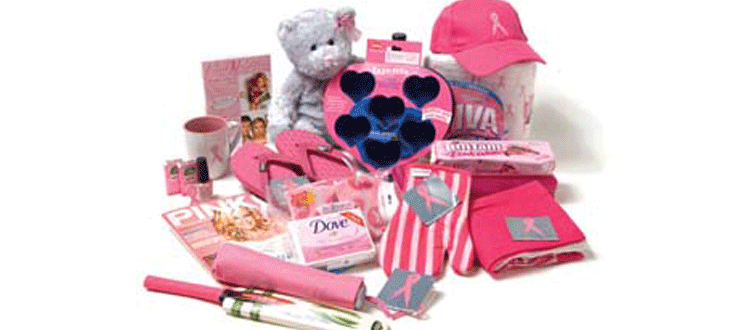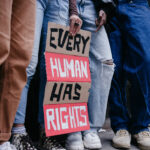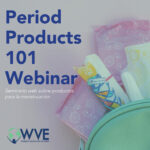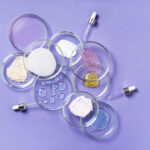Tips for Avoiding Pinkwashing
 |
|
Alex Scranton Director of Science |
Pinkwashing: A term used to describe companies that position themselves as leaders in the fight against breast cancer while engaging in practices that may be contributing to rising rates of the disease.
This October, we’re sick of finding pink ribbons “supporting breast cancer research” on products that actually contain chemicals LINKED to breast cancer. L’Oreal, Estee Lauder, and Procter & Gamble are famous for this, among others.
So how are you supposed to know which companies are pinkwashing and which ones are actually leaders in the fight against breast cancer? Unfortunately, it’s not easy. Here are a few tips to help you navigate the sea of pink ribbons and to avoid products that contain chemicals linked to breast cancer:
1. Avoid products that list chemicals linked to breast cancer on product labels:
- Parabens – preservatives found in numerous personal care and household products
- Triclosan – an antibacterial compound used in dish and hand soaps
- Fragrance – companies are legally allowed to keep fragrance a secret from consumers, even toxic ones. Phthalates and synthetic musks are two types of common fragrance chemicals that are linked to breast cancer that might be hiding under the umbrella term “fragrance.”
2. Avoid Bisphenol A (BPA)
- Canned foods are commonly lined with BPA, which is linked to breast cancer. Try to eat fresh or frozen foods instead.
- Refuse paper receipts from bank machines and stores if possible. Thermal paper receipt paper can be coated with BPA.
3. Look for three-free nail polish.
- Some nail polishes and hardeners– particularly those sold in salons – still contain the “toxic trio” of toluene, formaldehyde and dibutyl phthalate. But “three-free” nail products which don’t contain these chemicals are readily available.
4. Look for cleaning products that disclose all ingredients.
- Many cleaning products contain harsh chemicals which can disrupt hormone levels and increase your risk of cancer – and even worse, cleaning product companies aren’t required to list the ingredients in their cleaners!
5. Help solve the pinkwashing problem in the first place!
- Sign the Toxic Time is Up petition from our friends at Breast Cancer Action
- Take the pledge from our partners at Breast Cancer Fund to go Beyond the Pink
Want to know more about chemicals linked to breast cancer? Check out this handy resource from the Breast Cancer Fund.
Check out our monthly tip archive for more tips!







This is awesome! Thanks so much for writing about the dangers of pink ribbon marketing, and for sharing these amazing tips.
Pingback : #Pinkwashing: What it is and why it matters
Thanks for the tips. I don’t buy “anything” with the pink ribbon.
Thanks for this! I haven’t had nail polish in so long! But now my daughter is starting to see it around her and ask for it. While I understand you won’t want to endorser brands, I wonder if I can find “three-free” nail polish, as well as remover, in just about any pharmacy?
I appreciate the update including these tips. As a mother of a young daughter, nail polish is one product we need to be aware of.
Thank you,
Lynn Barrera
I had breast cancer over 18 years ago. It could have been from using chemcials as I use to clean houses for about 13 years; Anything is a possibility
Thanks for all of your work, and this vast amount of information to help all of us avoid exposure to 1,000’s of toxic chemicals – all hiding in products that many of us have used and trusted.
I have been anti- pink ribbon for many years, despite the puzzled look I get – people often do not understand why I would object to something that promotes breast cancer awareness.
And that’s the point I wish to make –
Forwarding important information to friends and relatives,is no longer enough. We all need to communicate, face to face, with people – especially the women in our lives. We are in an emergency situation – no one can afford to wait.
We must pay attention – our risk of cancer is high – we must talk, shout, petition, and demand ingredient transparency!
Our voices are stronger together!
What about wick oil Air freshener,Babrice Air freshener Renuzite thousand of chemical are put into conventional household products to create fragrance* The more fat you’re holding. The more chemical you’re holding in your body Those chemicals we use everyday and breast canser Respiratory problem, being expose to such ingredients has been thought to increase our risk for catching the disease.
MTA use it in every subways, buses, Churchs,some Restorants
PLEASE Do Not Use These Products When these are used I experience all the Following Symptoms!
SHORTNESS OF BREATH.AIR WAY CONSTRICTION. WEAKNESS& FATIGUE.DIZZINESS.SHAKINESS.COUPHING. BURNING IN THE THROAT,NOSE & EYES SICK IN MY STOMAC EVEN I GO FOR 4 SHOTS EVERY MONDAY STEEL USE OF SUCH PRODUCTS POSE ME SERIOUS HEALTH RISK AND MAY RESULT IN HOSPITALIZATION jANINE RO
PS FIFTY PERCENT OF AMERICANS ARE UNAWARE THESE PRODUCTS CHEMICALS TOXIN IS A KILLER (ALLERGIES KILL) PLEASE PASS ON THE WORD